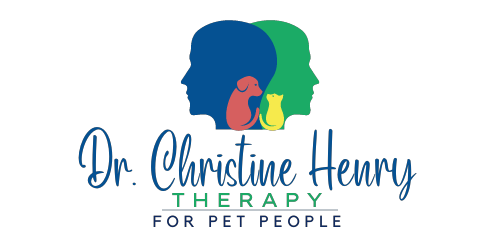
Counseling for HSPs - Highly Sensitive People
"You're overthinking things. It's not that big of a deal."
"You're too emotional. Why do you take everything to heart?"
"Just say no if you can't handle it. It's not that difficult."
"You're too picky about everything.”
“You are always complaining that you are tired.”
There are common things that Highly Sensitive Persons (HSPs) share. Being an HSP means we naturally react more strongly to things, similar to how we can't choose our eye color or height.
It's just part of who we are.
Our nervous system works in a unique way, making us more aware of emotions, sensory details, and the little things around us.
Are you sick of people not believing you and want some support and new strategies?
Are you tired of people not believing you and seeking support with new strategies? Schedule a free 20-minute video consultation with me to see how I can help. We will meet over video and discuss the goals you have and see if I would be a good match for your needs Fill out a contact form, and I'll email you to set it up. (no phone call required).

The world may not be built for HSPs but but together we can create a world that accommodates and supports you.
What Are Some Common Traits of HSPs?
We feel emotions very deeply, often leading others to describe us as 'oversensitive' or 'too much.'
When faced with rejection, we undergo significant emotional distress, and at times, even physical discomfort as a result.
We find it hard to say no and establish boundaries with others because we prioritize the feelings of others over our own. We often end up giving so much that it hurts.
We feel overwhelmed by sensory input such as noisy crowds, bright lights, strong smells, or uncomfortable clothing. Unfortunately, those around us often doubt the genuineness of our experiences.
We are intellectually curious about the world around us. We enjoy self-reflection and developing self-awareness. We often analyze our past, pondering why things unfolded as they did or what we could have done differently, at times needing more time to process information compared to those around us.
While we may enjoy being around others, we may require more downtime and solitude to recharge, as social interactions can be draining. Going out with coworkers might mean needing a day in bed afterward to recuperate.

What Does HSP Treatment & Therapy Look Like?
Dr. Christine Henry can provide therapy, treatment and support in your daily life as a highly sensitive person (HSP).
We'll carefully examine and acknowledge your sensory needs and preferences. From there, we'll develop stress reduction strategies specifically crafted to fit you.
Together, we will figure out what your triggers are that lead to emotional overwhelm. Once we gain an understanding of these triggers, we can generate strategies for prevention as well as methods to help you bounce back when it happens.
We will take the time to understand and recognize YOUR own wants and values. Once we've identified them, we will find effective ways to share these needs with others. (This, at first, feels really hard to do).
We'll integrate mind-body strategies, including biofeedback, to empower you in regaining control of how your body reacts to stress. Engaging in biofeedback at home enables us to offer real-time information about what is going on with your nervous system.
It's possible to have friendships that replenish your energy rather than just taking it. We can explore the dynamics of your friendships, relationships, and family of origin to identify patterns. Together, we can strengthen current connections and pinpoint what might be hindering the relationships you want to have.
You can work to replace those negative thoughts about yourself with a kinder attitude showing yourself understanding and care. By doing this, you might even start to build a sense of self-confidence. (Yes, that is a thing :)
Highly Sensitive Persons (HSPs) often set exceptionally high goals for themselves, which can eventually lead to burnout. Together, we will work on establishing realistic and achievable goals, providing you with a sense of progress and accomplishment.
Frequently Asked Questions
-
Therapy isn’t about “fixing” sensitivity it’s about helping you thrive with it. Together, we’ll figure out how to reduce overwhelm, set boundaries that stick, and build self-confidence. You’ll learn how to turn your sensitivity into a strength instead of feeling like it’s something to apologize for.
-
Sessions are collaborative and paced to fit you. Some days we’ll dive deep into past experiences, other days we might focus on real-time strategies for managing stress. I may use mind-body tools like biofeedback to help you understand how your nervous system responds and how to calm it.
-
Many HSPs come to therapy because of burnout, relationship struggles, trouble saying no, constant exhaustion, or feeling misunderstood by others. Some want help navigating sensory overload or managing anxiety that comes from processing so much at once.
-
I pay close attention to sensory needs, pacing, and how deeply you process information. Many highly sensitive people feel rushed or dismissed in other therapy spaces. Here, we slow things down, make space for reflection, and focus on approaches that fit the way your nervous system works.
-
Yes. Many HSPs struggle with people-pleasing, conflict avoidance, or feeling drained by social interactions. In therapy, we’ll practice ways to communicate your needs without guilt and explore relationship patterns so you can create connections that feel supportive, not depleting.
-
I don’t bill insurance directly, but I can provide a superbill you can submit to your insurance company to see if they’ll reimburse you for out-of-network services. Many of my clients prefer private pay because it keeps their diagnosis and records fully private, avoids session limits, and lets us work at a pace that actually supports long-term healing rather than insurance timelines.
Explore Resources
Are you still in the research and reading phase?
Not ready to start therapy?
No problem. I have created comprehensive resource pages where you can take a deep dive into self-help material.
There are journal articles and blogs affirming the validity of being highly sensitive. (Great for validation and ideal for sharing with those in your life who may be skeptical or doubt your experiences.)
The content includes creating a sensory regulation plan, ways to cope with feeling the emotions of others, strategies for regulating your own emotions, and coping with rejection sensitivity.
You do matter, your happiness matters.
Life does not have to be this hard.
Investing in yourself might feel difficult, but think about it this way: if someone close to you were going through similar challenges, you'd probably encourage them to prioritize their well-being and seek help. You deserve that same level of care for yourself.
Taking care of yourself is not selfish; it's an essential part of leading a fulfilling and balanced life.
We won't be changing who you are at the core. You're not the problem. Yes, being a Highly Sensitive Person (HSP) comes with its challenges, but it also brings lots of good things.
We'll work together to understand and handle the tough parts, so you can keep being yourself.
You're not wrong or broken; it's just about finding ways to deal with the world as an HSP.
Click on the link below and schedule a free 20-minute consultation. We will meet over video and discuss the goals you have for yourself and whether you feel that I would be a good match for your needs. (No phone call needed). Fill out the contact form, and I will email you to schedule our meeting.
You don’t have to do this alone!
Start Your Journey to Healing
Investing in yourself might feel difficult, but if someone close to you were going through similar challenges, you'd probably encourage them to prioritize their well-being and seek religious trauma therapy. You deserve that same level of care for yourself.
Contact me for a Free 20-minute Consultation to see how I can help. (No phone call needed).
HSP Therapy available in Houston, Austin, Dallas, San Antonio, Texas, Indianapolis, Columbus, Ohio and several other cities. See therapy locations.




















